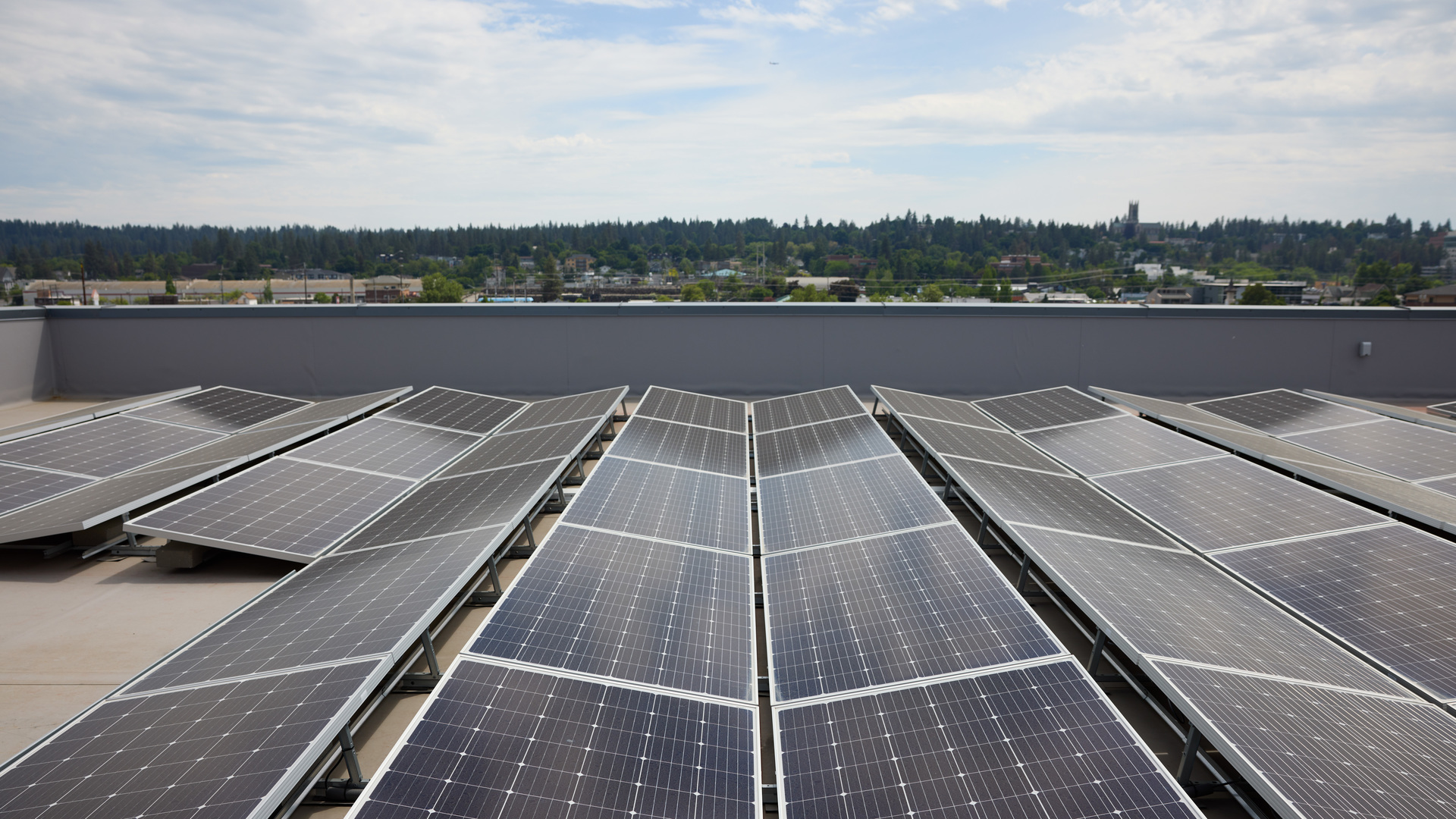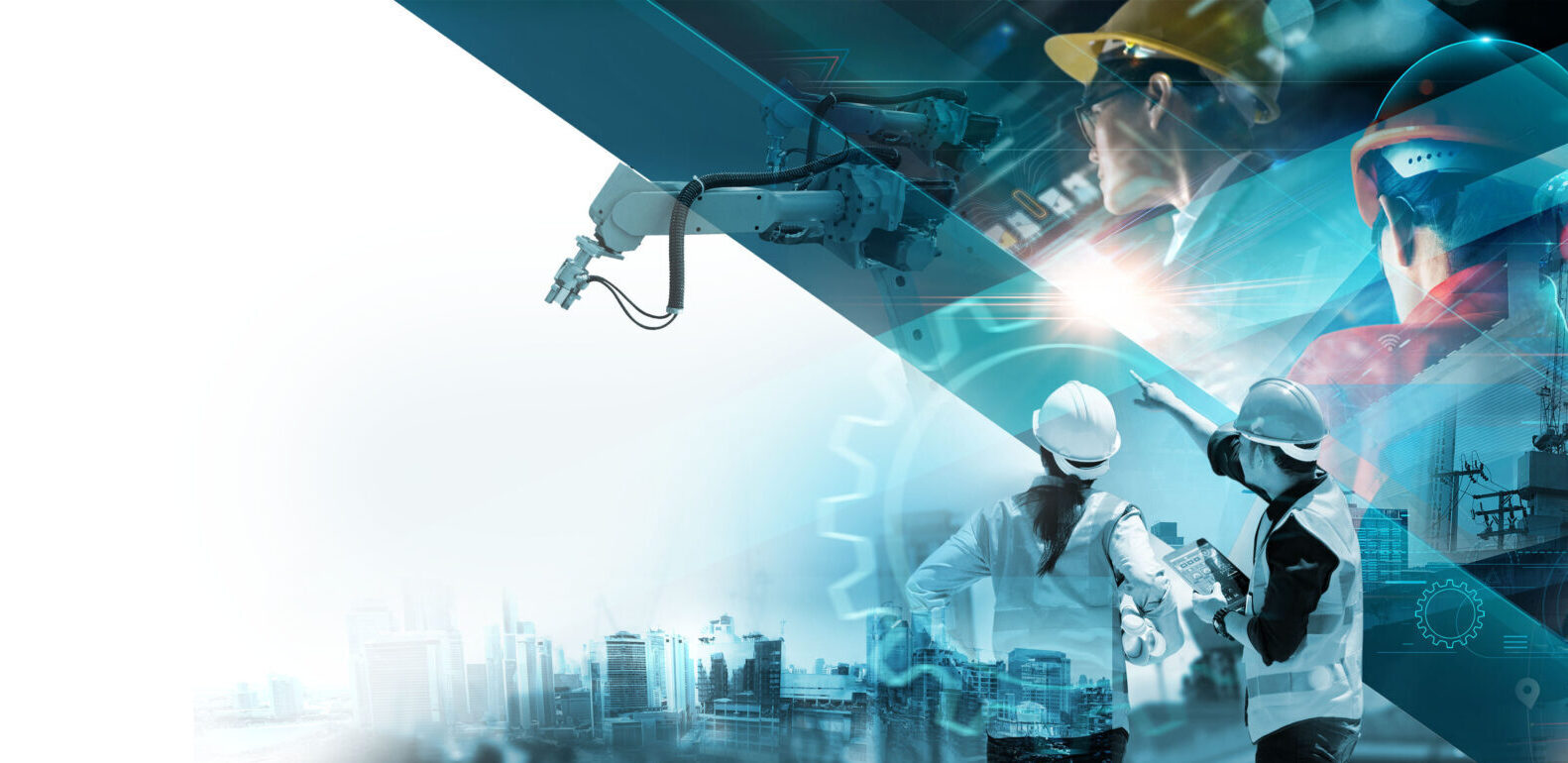- All Posts
- Inflation Reduction Act: Build America, Buy America
Inflation Reduction Act: Build America, Buy America
Our IRA video series dives into the details of the recent legislation to help you understand your options.
The Inflation Reduction Act creates significant opportunities for building owners to ready their operations for long-term resiliency and eliminate deferred maintenance, realize cost savings, accelerate decarbonization and reach equitable outcomes for generations to come.
Noor Awad, McKinstry Federal Funding Strategist, explains the Build America, Buy America Act (BABA):
BABA applies to all federal financial assistance — it is not limited to projects funded via the Infrastructure, Investment, and Jobs Act (IIJA or BIL). It is a permanent new requirement. If BABA applies to the prime recipient, then it also applies to subcontractors.
BABA applies to articles, materials and supplies that are consumed in, incorporated into or affixed to an infrastructure project. This does not include tools, equipment or supplies. Nor does it apply to other items that are not an “integral part” of the infrastructure, or which are not permanently affixed to the structure.
BABA is required when:
- The prime recipient is a non-profit; state/local/tribal gov’t; institution of higher education, and
- the project involves construction/alteration/maintenance/ repair of infrastructure, and
- the infrastructure is publicly owned or primarily utilized for a public purpose.
Domestic Manufacturing Requirements
The domestic manufacturing requirements for BABA can be categorized into three groups: iron and steel, manufactured products and construction materials.
- Iron and steel
- All manufacturing processes, from the initial melting stage through the application of coatings, must take place in the U.S.
- Manufactured products
- Product was manufactured in the U.S., and the cost of the components of the product that are mined, produced or manufactured in the U.S. is greater than 55% of the total cost of all components of the product.
- Examples: HVAC, solar.
- Construction materials
- All manufacturing processes for the construction material occurred in the United States.
- Examples: Drywall, light fixtures.
Waivers
There are three types of waivers that may be submitted if a project is unable to meet BABA requirements.
- Nonavailability Waiver: This waiver applies when a product cannot be domestically sourced or is not available in a reasonably satisfactory quantity, quality or time frame. If manufacturers cannot submit documentation or guarantee that the product is domestically sourced, then that is also basis for a waiver. This waiver includes a detailed justification as to how the non-domestic item(s) is/are essential the project. A certification that the recipient made a good faith effort to solicit bids for domestic products is also required.
- Unreasonable Costs Waiver: If the cost of the project increases by 25% or more as a result of complying with BABA, a waiver may be filed.
- Public Interest Waiver: This waiver can be applied for if complying with BABA is not in the public’s interest. This is likely the hardest waiver to prove and obtain.
Best Practices
- Include BABA requirements in RFP and Award Contracts with Contractors.
- Determine domestic manufacturing production of goods, products, or materials mined, produced, or manufactured for your project. Obtain documentation from manufacturer(s) to share with Technical Project Officer that certifies compliance with Build America, Buy America (BABA). Letter should include language such as “this [manufactured product] was domestically manufactured and meets the 55%”…
- Submit waiver requests for any manufactured products that you are not able to procure domestically that meet the 55% threshold.
BABA requirements can be tricky to navigate and require meticulous record keeping. McKinstry is ready to be your trusted partner and work with you to meet BABA.
For more information and resources, please visit our IRA blog or contact us below.
Interested in Learning More?
Please complete the required fields below to learn more about how McKinstry can help your organization achieve its sustainability goals.
Financial Disclaimer: McKinstry is not engaged in providing legal, tax or financial advice. The information provided herein is intended only to assist you in your decision-making and is broad in scope. Accordingly, before making any final decisions you should consider obtaining additional information and advice from your accountant or other financial advisers who are fully aware of your specific circumstances.
Explore Other Insights

Delivering 100+ Energy Audits Across Washington
When Washington State introduced its Clean Building Performance Standards, public-sector building owners faced a sign…

Constant Curiosity and Connection: Cass Young’s Journey a…
From supply chain to project engineering, Cass Young has built her career at McKinstry by staying curious, embracing …

AI’s Shadow Footprint: What Smart Infrastructure Needs to…
Every advancement in artificial intelligence carries a physical consequence: more computation, more heat and more pow…